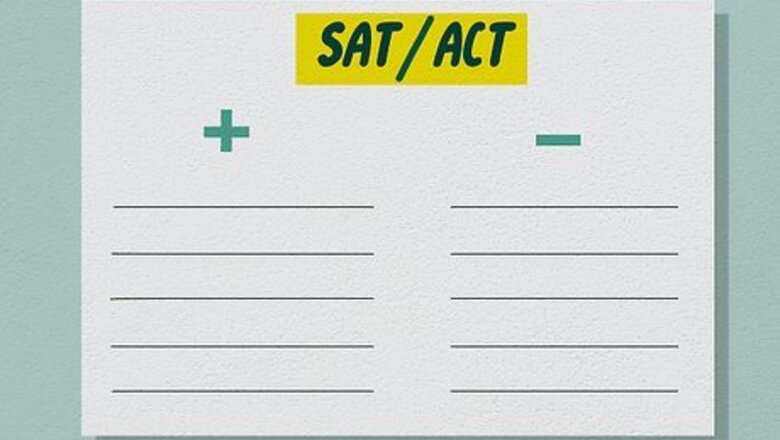
views
Setting Healthy Expectations
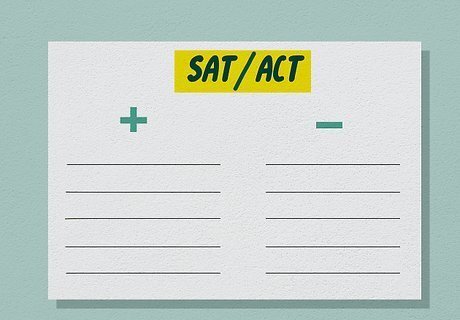
Weigh the pros and cons of taking the test at a young age. Taking the SAT or ACT in middle school is a really admirable goal; in fact, decent scores on this test can open you up to all kinds of new opportunities, like youth talent programs. However, keep in mind that it takes a lot of work and focused study to get ready for the SAT or ACT, which will eat up a lot of your free time. Take some time to write a pros and cons list and see which way you’re leaning. It’s perfectly fine if you decide not to take the test. You’ll have plenty of opportunities once you reach high school!

Anticipate that you’ll be the youngest test-taker in the room. Keep in mind that a lot of the other test-takers will probably be in high school taking the test for their college applications. Don’t let this intimate you—at the end of the day, the only thing you need to focus on is your own test. If you’re feeling nervous, see if you can grab a seat further away from some of the older test-takers.
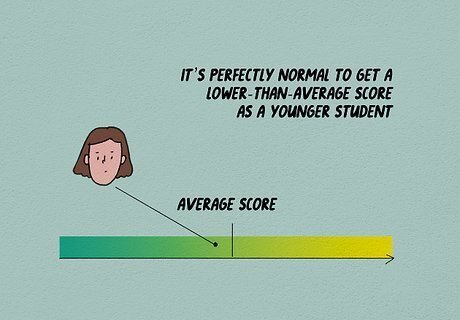
Go easy on yourself as you prepare. Remind yourself that the SAT and ACT tests are catered towards high school students. It’s perfectly normal to get a lower-than-average score on these tests as a younger student, especially if you haven’t learned all the material that’ll be on the test. Use these tests as a way to develop good study habits and expand your knowledge, not as a measure of your intelligence. Talent programs specifically set a lower bar for students from younger grades, since these students won’t know all the material on the ACT or SAT.
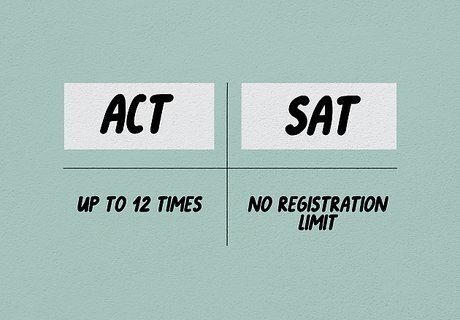
Register for the test again if you aren’t happy with your score. Don’t be disappointed if you don’t get the exact score you want. If you’re in middle school, there’s a very good chance that you simply haven’t learned all the content covered in either test. Use your first test score as a baseline for future tests, and create a goal for yourself in the future. Keep in mind that you can only take the ACT up to 12 times, while the SAT has no registration limit. For instance, if you score a 17 on your first ACT, aim to score an 18 or higher on your next test.
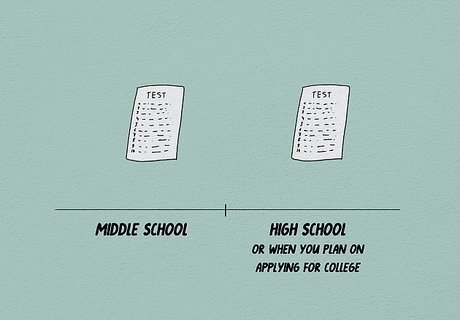
Expect to take the test later on when you apply for college. Note that your middle school scores won’t apply to your future college applications. Universities want to see recent test scores, so you’ll need to retake either test in high school, or whenever you plan on applying for college. Many people take these tests during their junior year of high school.
Evaluating Your Goals
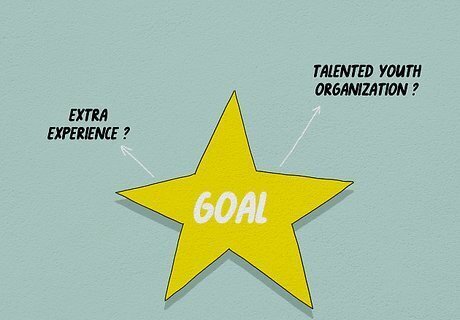
Take the SAT or ACT early if you’d like to get extra experience. Think about your main motivations for studying and registering for these standardized tests. Are you hoping to get some experience under your belt, or are you aiming to get into a talented youth organization? Colleges and universities prefer to see SAT and ACT test results from your high school years, so your scores won’t count for college if you’re taking the exams in middle school. Taking the SAT and ACT early on can be a great way to get used to the way the test works.
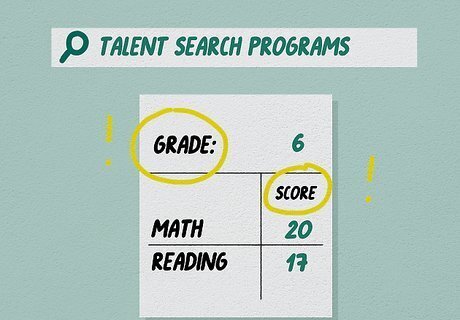
Search online for different programs that cater to talented youth. Several notable universities like Duke, Northwestern, and Johns Hopkins all offer “talent search programs,” which is a training and study resource for gifted kids. To be accepted into these types of programs, you’ll need a specific SAT or ACT score to qualify. For instance, Johns Hopkins requires 6th-grade students to score a 20 on the ACT math section and 17 on the ACT reading section. It’ll be easier to manage and handle your studies if you have an end goal in mind.
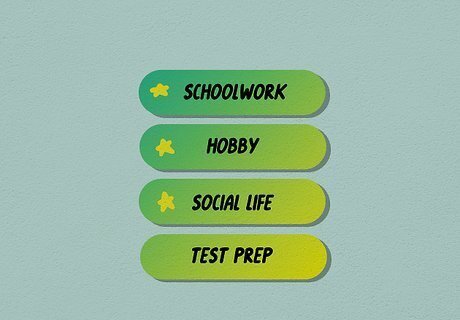
Prioritize your regular studies first. Always put your schoolwork, hobbies, and social life before any test prep. SAT and ACT tests are a great way to build academic experience, but you don’t need to sacrifice your whole schedule in order to prepare. Plan to take the test several months in advance, so you can successfully balance test prep as well as your regular homework. For instance, 5 or 6 months is an ideal amount of test prep time to give yourself. Don’t let standardized tests take over your life! While it’s great to have a big academic goal for yourself, remember to take some time to relax.
Creating an Effective Study Schedule
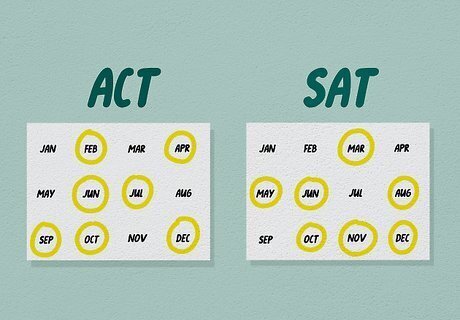
Review the upcoming test dates for the ACT and SAT. Look at the official CollegeBoard website to see when the upcoming ACT and SAT tests are. Note that the ACT is held in September, October, December, February, April, June, and July, while the SAT is held in March, May, June, August, October, November, and December. Depending on your study schedule, you may want to get both tests out of the way at the same time.
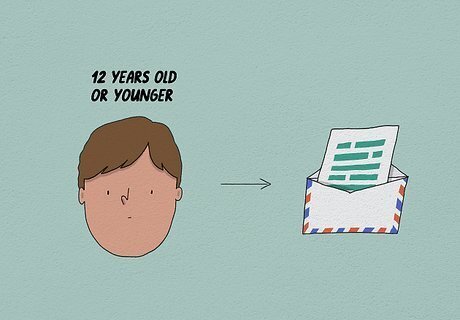
Register via mail if you’re age 12 or younger. Keep your age in mind before signing up for a certain test date. All teenagers can sign up for the SAT and ACT online, but pre-teens need to register over the phone or send in their registration via mail. If you’re especially young, you’ll need to plan your test date in advance. You can register for the ACT here: https://www.act.org. After making an account, you can request a registration packet, which you can complete and mail back. You can enroll for the SAT here: https://collegereadiness.collegeboard.org/sat/register. You can mail your SAT registration to:The College Board SAT ProgramAttention: Talent Search ScoresP. O. Box 025505 Miami, FL 33102
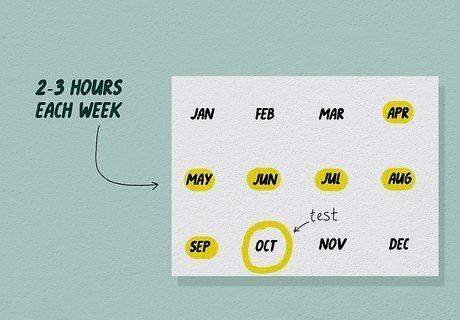
Dedicate 2-3 hours each week for 5-6 months before you take the test. Don’t register for a test willy nilly—while it’s tempting to get the test out of the way, make sure you have enough time to study and prepare. Give yourself at least 3-5 months to start reviewing the material for whichever test you’re registered for. Ideally, try to log at least 40 total study hours before the test date. For instance, take 30 minutes each weekday to review SAT or ACT sample questions.
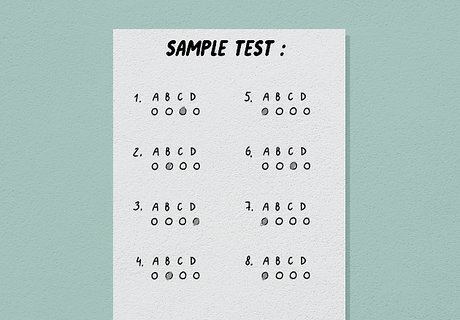
Look up sample test questions online. Visit some popular, nationally-recognized sites that cover a lot of ground, like CollegeBoard. Focus on subjects that you aren’t as familiar with, whether it’s math, reading, writing, or science. Copy or print out some of these questions so you can review them on your own time. For instance, if your weakest subject is math, you may want to download some ACT and SAT prep questions.
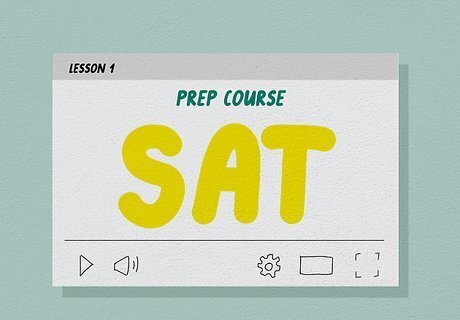
Enroll in a test prep course. Look online for digital courses that help you practice for different aspects of the ACT and SAT tests. You can look for independent study groups for class openings, or see if a local university offers test prep classes. For instance, groups like Khan Academy, Princeton Review, and Kaplan Test Prep all offer online courses.
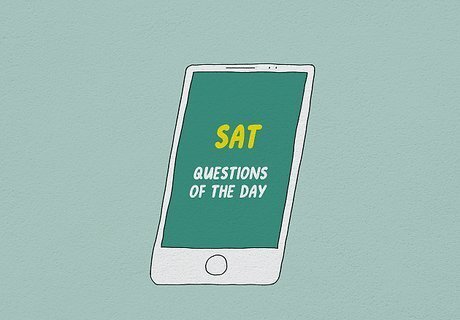
Quiz yourself with SAT Questions of the Day. Download the “SAT Question of the Day” as you begin studying for the test. Check this app once a day to receive a sample test question. Set aside a few minutes to solve or answer this question to the best of your ability. Some tutoring websites offer daily SAT and ACT test questions.
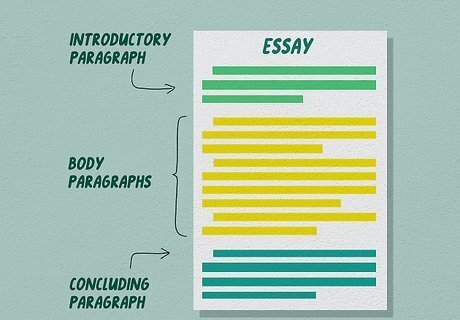
Write essays to practice for the writing portion of the tests. Don’t worry if you can’t write at a high school level! Instead, focus on the basic structure of an academic essay. Draft out a 5-paragraph essay to the best of your ability, including an introductory paragraph, body paragraphs, and a concluding paragraph. This will give you a lot of valuable insight and skill when it comes to the writing portion of either standardized test! For instance, you can practice writing a 5-paragraph persuasive essay about an issue that’s important to you. Try timing yourself as you write, and see if you can lower your time with each new essay you write.
















Comments
0 comment